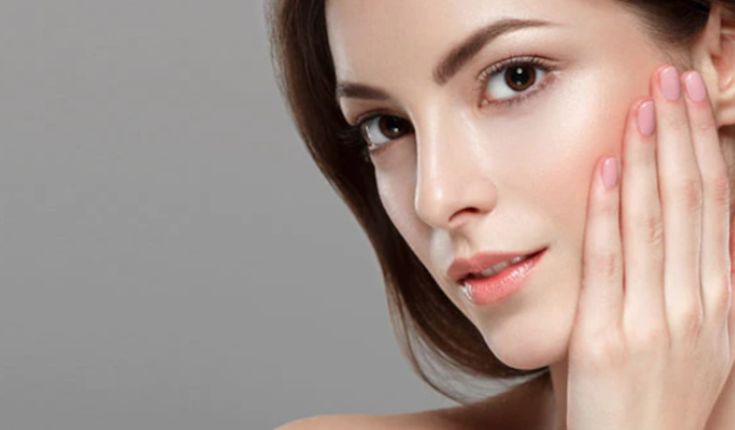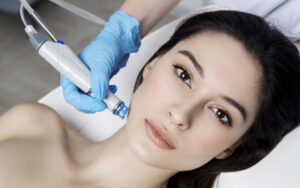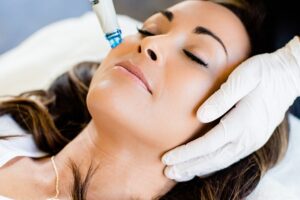
Acne is a common skin condition that affects people of all ages, often leading to frustration and a dip in self-confidence. It can take various forms, from mild breakouts to severe cystic acne, and finding the right treatment can feel overwhelming. But with a deeper understanding of your skin type, the causes of acne, and the most effective treatment options, you can achieve clearer, more radiant skin. Buy Accutane online from Dosepharmacy, a trusted and reputable pharmacy. Accutane treats severe acne, nodulosis, and cystic acne.
In this guide, we’ll explore the causes of acne, proven treatment methods, and helpful tips for managing breakouts.
Understanding the Causes of Acne
Acne occurs when the skin’s pores become clogged with oil, dead skin cells, and bacteria. Several factors contribute to the formation of acne, including:
1. Excess Oil Production:
Sebaceous glands in the skin produce sebum, a natural oil that helps keep the skin hydrated. However, when too much oil is produced, it can mix with dead skin cells and clog pores, leading to acne. Buy isotretinoin online from Dosepharmacy, a trusted and reputable pharmacy. Accutane treats severe acne, nodulosis, and cystic acne.
2. Bacterial Build-up:
The bacteria known as Propionibacterium acnes (P. acnes) thrive in clogged pores, causing inflammation and leading to the development of pimples, blackheads, and cysts.
3. Hormonal Changes:
Hormonal fluctuations, particularly during puberty, menstruation, pregnancy, or stress, can increase oil production, leading to more breakouts.
4. Diet and Lifestyle:
High-glycemic foods, dairy products, and a diet rich in refined sugars can worsen acne in some individuals. A poor skin care routine, stress, and lack of sleep can also contribute to flare-ups.
Now that we understand the main causes of acne, let’s dive into some of the most effective treatments and tips for managing this condition.
Proven Acne Treatments
1. Topical Treatments
Topical medications are applied directly to the skin and are often the first line of defense against acne. These treatments can help to reduce oil production, kill bacteria, and promote the shedding of dead skin cells.
- Benzoyl Peroxide: This powerful antibacterial agent kills P. acnes bacteria and reduces inflammation. It can be found in creams, gels, and cleansers, often at concentrations between 2.5% and 10%. Start with a lower concentration to avoid irritation.
- Salicylic Acid: A beta hydroxy acid (BHA) that helps to exfoliate the skin and unclog pores. Salicylic acid is particularly effective for treating blackheads and whiteheads.
- Retinoids (Tretinoin, Adapalene): Derived from vitamin A, retinoids work by increasing cell turnover, which helps prevent clogged pores and reduces the formation of acne. They are available in both prescription and over-the-counter formulations. However, retinoids can cause dryness and peeling, so it’s important to introduce them slowly into your routine.
2. Oral Medications
For more severe or persistent acne, oral medications may be necessary. These treatments work from the inside out, addressing the underlying causes of acne.
- Antibiotics: Oral antibiotics like doxycycline or minocycline can be prescribed to reduce bacteria and inflammation. However, they are usually a short-term solution, as long-term use can lead to antibiotic resistance.
- Oral Contraceptives: Birth control pills that regulate hormones can be effective for women whose acne is caused by hormonal fluctuations. These pills work by lowering the levels of androgens, the hormones that can trigger excess oil production.
- Isotretinoin (Accutane): This potent oral retinoid is reserved for severe cases of acne that don’t respond to other treatments. Isotretinoin reduces oil production, shrinks sebaceous glands, and prevents clogged pores. However, it comes with potential side effects, so close monitoring by a healthcare provider is essential.
3. Professional Treatments
Dermatologists offer a range of in-office treatments that can target stubborn acne and help to improve the skin’s texture and appearance.
- Chemical Peels: These treatments involve applying a solution to the skin that causes it to exfoliate and eventually peel off. Chemical peels can help unclog pores, reduce inflammation, and fade acne scars.
- Laser and Light Therapy: These treatments use various forms of light to kill acne-causing bacteria, reduce oil production, and promote skin healing. Laser treatments can also help improve the appearance of acne scars.
- Extraction: For large, painful pimples, a dermatologist may perform an extraction to drain the pus and reduce inflammation. This procedure should only be done by a professional to avoid scarring or infection.
Tips for Clear Skin
In addition to medical treatments, adopting good skincare habits can help keep acne under control. Here are some practical tips for achieving and maintaining clear skin:
1. Establish a Consistent Skincare Routine:
Consistency is key when it comes to managing acne. Follow a daily routine that includes cleansing, moisturizing, and applying treatments suited to your skin type. Avoid over-washing, as this can strip the skin of its natural oils and worsen acne.
2. Choose Non-Comedogenic Products:
When shopping for skincare products and makeup, look for labels that say “non-comedogenic,” which means they won’t clog pores. Oil-free and water-based products are also good options for acne-prone skin.
3. Don’t Skip Moisturizer:
Even if you have oily skin, it’s important to keep your skin hydrated. Opt for lightweight, oil-free moisturizers that won’t clog pores but will help maintain the skin’s moisture barrier, preventing excess oil production.
4. Avoid Touching Your Face:
Touching your face can transfer dirt, oil, and bacteria from your hands to your skin, increasing the risk of breakouts. Resist the urge to pick at pimples, as this can lead to scarring and prolong healing.
5. Stay Hydrated and Eat a Balanced Diet:
Drinking plenty of water helps flush out toxins from your body, keeping your skin clear. Incorporate foods rich in antioxidants, vitamins, and minerals—like leafy greens, berries, and fish—to support skin health. Some people find that cutting back on dairy or sugary foods helps reduce breakouts.
6. Get Plenty of Rest and Manage Stress:
Lack of sleep and high-stress levels can contribute to hormonal imbalances, leading to more acne. Aim for at least 7-8 hours of sleep per night and engage in stress-reducing activities like yoga, meditation, or journaling.
Conclusion
Acne can be a frustrating and persistent issue, but with the right combination of treatments and skincare practices, it’s possible to achieve clear, radiant skin. Whether you’re dealing with occasional breakouts or more severe acne, taking a proactive approach will help you regain control and confidence. Be patient, as acne treatments can take time to show results, and consult with a dermatologist if you need guidance on the best options for your skin type and condition.


:strip_icc():format(webp)/kly-media-production/medias/4811231/original/006255000_1713936497-WhatsApp_Image_2024-04-24_at_12.23.26_e028df17.jpg)
:strip_icc():format(webp)/kly-media-production/medias/1948251/original/048661500_1519867907-WhatsApp_Image_2018-03-01_at_07.59.21.jpeg)


